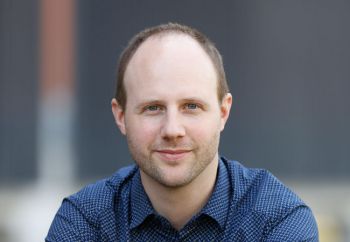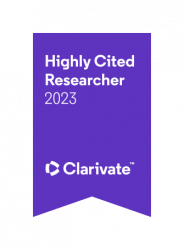News from the Institute

IBC2 group leader Christian Münch have been awarded with a Consolidator Grant of the European Research Council (ERC). The ERC Consolidator Grant is one of the EU's most prestigious funding programmes for individual researchers who are in an intermediate career stage after obtaining their doctorate. In addition to scientific excellence, applicants must demonstrate the groundbreaking approach of their project and its feasibility in order to receive funding.
... (read more)
Researchers around IBC2 Vice Director Stefan Müller have uncovered a mechanism driving the accelerated growth of leukemia cells with a prevalent genetic mutation. The study focused on acute myeloid leukemia (AML), a life-threatening blood cancer prevalent in adults, with a specific mutation in the NPM1 gene. The investigation revealed that leukemia cells carrying this mutation activate specific genes vital for cellular recycling. Published in Cell Reports, the findings present promising therapeutic possibilities, offering fresh insights into combating AML.
... (read more)
For the sixth year in a row, IBC2 Director Ivan Đikić is recognized for his exceptional impact by publishing multiple highly cited papers in two categories, “Biology and Biochemistry” and “Molecular Biology and Genetics”. His papers in these fields rank in the top 1% by citations based on Web of Science records from 2012 to 2022. A total of 7,125 highly cited researchers worldwide are listed this year, from which only 238 were named in two disciplines.
... (read more)
IBC2 Director Ivan Đikić is awarded an honorary doctorate from the University of Rijeka. The Senate of the University of Rijeka decided in accordance with the expert committee for the evaluation of proposals on awarding Ivan Đikić the GRADUS DOCTORIS HONORIS CAUSA for his outstanding contribution to science, scientific education and popularization of science, as well as an exceptional contribution and advices for the development of the University of Rijeka.
The honorary doctorate acceptance ceremony was held at the University of Rijeka on July 4th 2023.

This year German Association for Aging Research (DGfA) has organized the Annual meeting in Jena. By welcoming scientists from all over Germany and worldwide, the Community of Aging Researchers ensured high-quality scientific discussions, exciting talks and poster presentations. This year a major focus was on the inter-organ communication in ageing and the interplay between stress and immunity responses leading to the host metabolism reprogramming. Connecting basic science to translational ageing research and clinical trials, the conference ensured a broad overview of underlying molecular mechanisms and future therapeutic approaches in ageing-related diseases. The prize for the best oral presentation at the Annual Meeting of the German Association for Aging Research 2023 was awarded to Ines Tomaskovic for her presentation: “Gender and phenotype bias in loss-of-SPRTN-driven Progeroid Syndrome”.
... (read more)